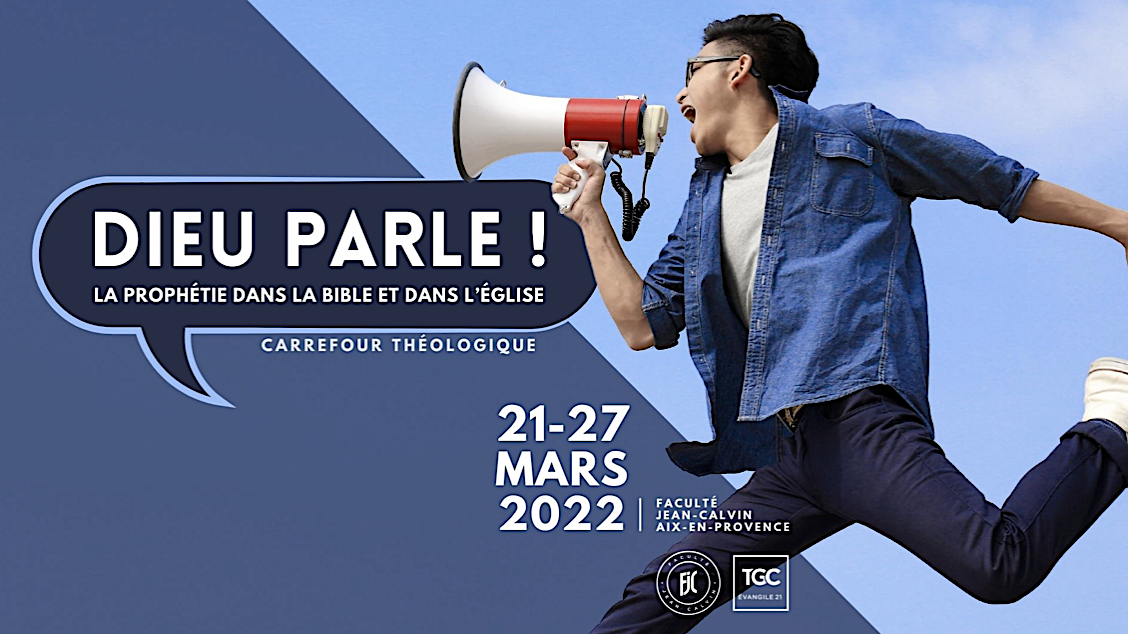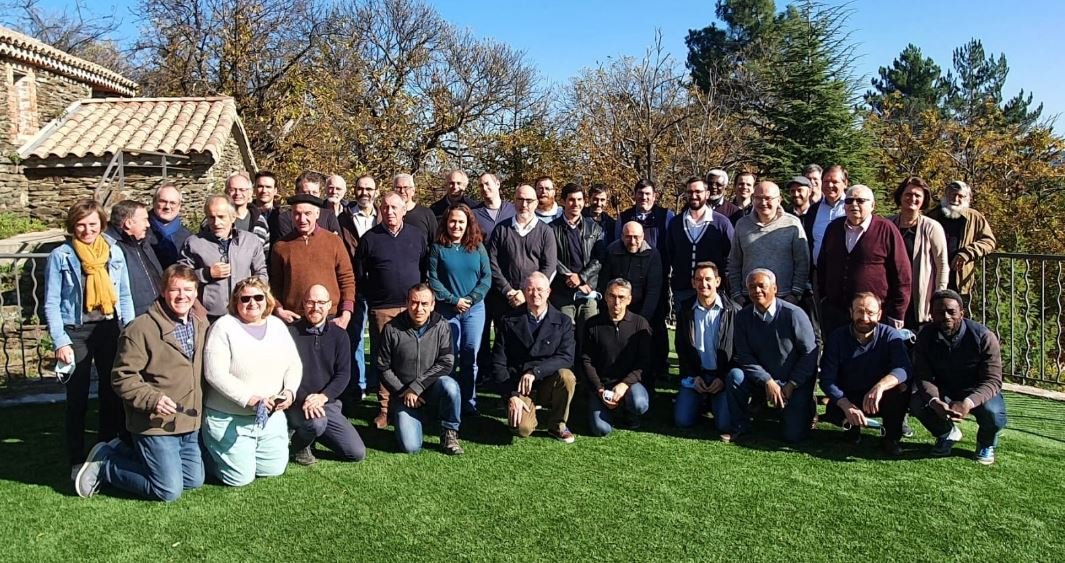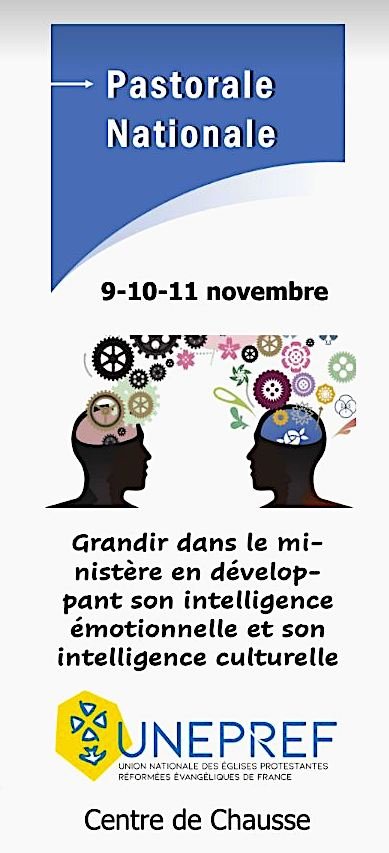Faculté Jean Calvin’s heritage dates from World War II, but by the 1960s the Seminary did not have enough students to continue operating. In 1974, it changed its charter and reopened its doors. However, this time as an independent confessional seminary rather than a denominational one, thereby attracting more students and in continuous operation ever since. The link below is to its first publication (French) in 1975 after that new beginning, which includes several important articles and interesting photos.
The first article, translated below, presents the opening address by Pierre Filhol. Now 46 years later, his assessment of our modern world remains spot on. As Bill Edgar recounts, this solid Cévenol led the Seminary at that time, along with Pierre Courthial. He was an enlightened elder in the Eglise Reformée Evangélique (now UNEPREF). Trained as a lawyer, he was also a brilliant money manager. His wisdom and counsel were significant for the development of our beloved work. He and his dear wife, Renée, were pillars of the Seminary through the 1990s. Their personal kindness and hospitality were unparalleled.
Revue de la Faculté de Théologie Réformée 1975
***************
Opening address by Pierre Filhol
To inaugurate a new Theological Seminary where future pastors, evangelists, missionaries or quite simply the faithful complete their knowledge of the catechism and train, may seem a very odd decision in our time. Some will even think that it is an unnecessary luxury, obsolete moreover, and they have not failed to let us know here and there that today there are really more important things to do. I think, despite everything, that this Seminary will be an addition to those which are already functioning but not too much. Indeed, if we disregard the Seminary of Strasbourg, with its very special status, there are only three Seminaries of Protestant Theology in France and insofar as each of them - which is the case currently - presents a very marked distinction. One cannot speak of an overabundance of goods, but simply of abundance "which does not harm" as the saying goes, even in theology.
So, I would like, in a few words, to explain the why and the how of this undertaking.
I – First Why
We are living, you will easily agree with me, in a very confusing moment in the history of mankind. It is a time for questioning, uncertainty, doubt, interrogation. After an extraordinary era of discovery and scientific and technological progress of all kinds, our modern world is increasingly questioning the content of the type of society it has relentlessly built for itself over several generations, and the goals to be sought for the next ten or fifteen years. Political and economic leaders are increasingly worried, and the keywords ‘expansion’ and ‘growth’ are being questioned. The formidable industrial structure put in place totters and turns out to be a colossus with feet of clay facing the challenge thrown at it by some Desert States. And, in the basement is filled with this "black gold" (oil) whose quadrupling of price in a few months has become the obsession of those who govern.
In terms of mores, taboos more or less preserved until now sometimes with a lot of hypocrisy, are now rejected by the impertinence of men and women who want, they say, to live differently, faster, and more fully than those who came before them. Literature and cinema are invaded by an ever more aggressive eroticism. Thus in 1973, 20% of cinema receipts were made by pornographic films. The producers and distributors questioned on this disastrous aspect of current cinema simply replied: "people like it and the trade finds it profitable”. I personally add, do not upset the laws of the sacrosanct liberal economy which only retain the criterion of profitability to judge the value of a company. With such arguments, the porn film has a bright future ahead of it!
We are also living in a time of discrepancies and inconsistencies. Two men have underlined, in recent news, this harsh reality:
- Professor Jean Bernard (interviewed on television after the scientific colloquium at the Sorbonne) speaks of "rational concern" in the face of the discordance between scientific progress, particularly biological progress, which is ever more advanced and conquering, and the stagnation of Human age. There’s no common measure, he says, between the knowledge of a modern scholar and that of Archimedes, but between Plato and a modern philosopher, one can truly speak of regression.
- Another example: during the last Assembly of the International Monetary Fund, the President of the World Bank, "the bank of poor countries", spoke of the "billion inhabitants of the planet condemned to a desperate future, if the international community does not immediately come to their aid”.
So, while our country is wondering about the advisability of limiting the speed on the motorway and setting the heating of apartments at a maximum of 20 degrees (68F), a few thousand kilometers away famine is silently killing thousands of human lives.
The questioning of traditional values, discrepancies and disruption of socio-economic mechanisms, accompanied by the questioning of those responsible, the worry even of the most rational, characterize our modern world.
I believe the Bible contains the definitive and eternal answer to this absurd and heartbreaking situation. It is the ancient book in which God has recorded the teaching which allows mankind to live fully today, consistently and responsibly, for himself and for others. This is why this Seminary is opening, to try humbly, but with faith and perseverance, to make heard the message of God to our contemporaries.
lI - HOW DOES THIS SEMINARY WORK
a) It has an autonomous administrative structure: it does not depend on any public authority, of course, but also on no private institution. It is not under the direction or control of any synod or church assembly. Its Board is a deliberative and sovereign body. All those who want to be associated with this effort and who are working on it are represented there. In all, seventeen titular members.
I would like to thank the Independent Evangelical Reformed Churches and the Worship Association for the support of the Seminary, which accepted this radical transformation compared to the former Seminary of Protestant Theology (denominational), and particularly the Association which provides its premises free of charge at the disposal of the Board and has financed, in the last twelve months, more than 200,000 Francs of development work.
b) In terms of management, this Seminary is “self-managed”. By this I mean that the administration is appointed, elected directly by the Board of the Seminary, with regard to the President of the Board, the Vice-President, the Treasurer, and the Secretary. And by the Council of Professors, with regard to the Academic Director.
c) The Seminary is confessing and not pluralistic. All the members of the Board, with the exception of the representative of the students, must expressly adhere to the basic texts of the Seminary: the confession of faith of the Reformed Churches of France of 1559 known as “of La Rochelle” and the declaration of faith of the World Evangelical Alliance. The same is true for all full professors.
d) The Seminary is a servant, it wants to be at the service of all Protestant churches. Its ambition is not to privilege such and such, nor to pass judgment on such and such another. From the outset, it wanted to mark its theological distinction which makes it, if not its raison d'être, at least its originality. But this being said, so that any ambiguity is removed, I would point out that it was not created in reaction to such a tendency of current French Protestantism. The determination which animated its promoters, and which led the Seminary’s team is by no means defensive and passive, but resolutely offensive and therefore positive, and this without partisan or sectarian spirit. We do not want to work against men, clans, orientations of which some of us might disapprove, but we simply and firmly wish to associate ourselves with the testimony of the Reformation which affirms that: "God makes himself known to people by His Works which are manifest, and even more clearly by His Word which we call: Sacred Scripture."
I therefore solemnly declare open the Free Seminary of Reformed Theology of Aix-en-Provence, and without further ado I wish it a long life in the service of the churches and for the glory of God.









